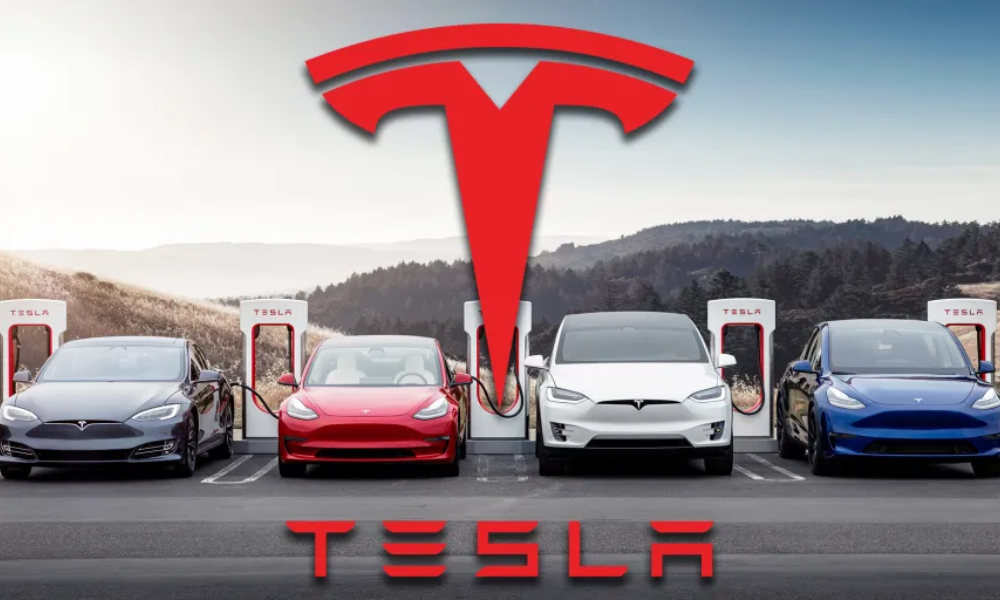Warren Buffett Reduces Stake – Warren Buffett is widely regarded as one of the most successful investors of all time. Known for his long-term investment strategy, Buffett often holds assets for decades, embodying patience and discipline. His approach to investing, through Berkshire Hathaway, has been a model for both new and seasoned investors, cementing his reputation as an unparalleled financial strategist. However, even Buffett, who is typically resistant to frequent changes, occasionally adjusts his portfolio. One of the most notable recent moves was when Warren Buffett reduces stake in the Chinese electric vehicle (EV) giant BYD.
This decision has sparked significant conversation among investors, especially those looking to understand the strategic adjustments made by even the most seasoned professionals. By reducing his stake in BYD, Buffett’s actions provide a glimpse into the changing dynamics of the electric vehicle market and the broader investment landscape. Let’s delve deeper into Berkshire Hathaway’s investment in BYD and the broader context of the electric vehicle market.
Berkshire Hathaway’s Investment in BYD and Why Warren Buffett Reduces Stake
Berkshire Hathaway’s involvement with BYD dates back to 2008 when the investment firm acquired 225 million shares of the Chinese electric vehicle company for $232 million. The decision to invest in BYD was an early bet on the future of electric vehicles and clean energy, both sectors poised for significant growth. Over the years, this investment has proven extremely lucrative, with the value of these shares skyrocketing to $5.9 billion by late 2020.
However, Warren Buffett reduces stake in BYD, adjusting his portfolio by selling 1,395,500 shares, reducing Berkshire’s stake from 5.06% to 4.94%. According to Hong Kong Stock Exchange rules, shareholders owning more than 5% of a company are required to disclose their holdings. By reducing the stake below this threshold, Buffett gains greater flexibility to manage the remaining shares privately.
This move, while small in percentage terms, raises important questions. Why would Buffett, known for holding onto investments for the long term, decide to reduce his stake in a company that had proven to be so profitable? The answer lies in the changing landscape of the electric vehicle industry and the global financial markets.
Since late 2022, Buffett has been reducing his position in BYD, a decision likely influenced by the volatility in the EV sector. The electric vehicle market has experienced significant fluctuations, and while the sector remains promising, it is not without risks. By rebalancing his portfolio, Buffett can better position Berkshire Hathaway to take advantage of new opportunities while mitigating exposure to the unpredictable nature of the EV market.
The Volatile Nature of the Electric Vehicle Market: Why Warren Buffett Reduces Stake
The electric vehicle market is growing rapidly, with projections showing continued expansion. In 2023, global EV sales reached 14 million units, representing one in every five cars sold globally, according to the International Energy Agency. Despite this growth, the market is not without its challenges. Companies like Tesla, which has long been the dominant player in the electric vehicle space, have experienced significant stock volatility in recent years.
Tesla’s stock, for example, saw a dramatic drop of 12% following its Q2 2024 earnings report, which revealed a 7% decline in automotive revenue compared to the previous year. This downturn resulted in a $16 billion drop in the net worth of Tesla’s CEO, Elon Musk. Tesla’s stock price volatility serves as a reminder of the inherent risks associated with the electric vehicle sector.
Moreover, traditional automotive manufacturers like Ford are facing similar challenges. Ford’s EV division has struggled with profitability, despite a 61% increase in EV sales during Q2 2024. The company forecasted a $5 billion loss for the division, leading to a 13% drop in its stock price. These financial pressures illustrate the difficulty of turning a profit in the highly competitive and rapidly evolving electric vehicle market. For investors like Buffett, it is essential to monitor these dynamics closely.
Strategic Adjustments by Warren Buffett: A Lesson for Investors
Despite the volatility in the electric vehicle market, Warren Buffett reduces stake in BYD as part of his broader investment strategy. This is a lesson in patience and adaptability. Buffett is not one to make rash decisions based on short-term market fluctuations, but he is always willing to adjust his portfolio to reflect evolving market conditions. His decision to reduce his stake in BYD highlights the importance of periodically reassessing investments, even in industries that are experiencing significant growth.
The key takeaway from Buffett’s approach is that investors should not be afraid to make strategic adjustments. While it is essential to maintain a long-term perspective, it is equally important to recognize when market conditions have changed and to adjust accordingly. Buffett’s move is an example of how even the most experienced investors must evolve and adapt their strategies to remain successful in a changing economic environment.
The Impact of Market Volatility on Electric Vehicle Stocks
While Buffett’s decision to reduce stake in BYD may seem like a cautious move, it is not an isolated case. The electric vehicle market, particularly in the United States, has been highly volatile. Tesla’s stock price has experienced significant fluctuations in recent years, with a major dip in 2024 after disappointing earnings results. However, despite this volatility, analysts remain optimistic about Tesla’s future growth prospects, with many predicting that the company’s stock will rebound.
Tesla’s continued dominance in the electric vehicle market cannot be overstated. In 2023, Tesla delivered 1.8 million electric vehicles, marking a 38% increase from 2022. Despite the recent challenges, analysts like Dan Ives from Wedbush maintain a positive outlook for Tesla, with a target price of $300 per share. However, this optimism is tempered by the realization that Tesla’s growth will not be without its obstacles. The company faces stiff competition from other EV manufacturers, including traditional automakers like Ford, General Motors, and Volkswagen, all of which are investing heavily in electric vehicles.
The Future of Electric Vehicles and Opportunities for Investors – Warren Buffett Reduces Stake
The future of the electric vehicle (EV) market remains highly promising, with global sales showing steady growth and technological innovations driving the industry forward. The shift toward sustainability and the need to reduce carbon emissions have also created a strong demand for EVs, supported by government incentives and policies around the world. However, as demonstrated by companies like Tesla and Ford, the journey to profitability in this sector is often complex and filled with challenges. Companies must deal with high capital expenditures, supply chain disruptions, and regulatory hurdles, all of which can impact their bottom line.
While Warren Buffett reduces stake in certain EV companies, this move reflects his cautious approach toward high-growth sectors and his emphasis on long-term, stable investments. Buffett’s decision to reduce his involvement in electric vehicle stocks like BYD, despite its success, highlights his broader investment philosophy. He remains focused on companies with solid fundamentals, clear profit-making strategies, and the ability to weather economic fluctuations. His shift away from certain EV stocks doesn’t signal a lack of confidence in the sector as a whole, but rather an adjustment in portfolio strategy to ensure greater consistency.
In addition to established automotive giants, such as Tesla and Ford, a host of new players are entering the electric vehicle market, bringing with them fresh ideas and cutting-edge technologies. Companies dedicated to autonomous driving, advancements in battery technology, and the development of renewable energy solutions are expected to play a crucial role in the future of EVs. As these emerging technologies gain momentum, they could significantly reshape the landscape of electric vehicles. For instance, breakthroughs in battery efficiency and energy storage capacity could reduce production costs, making EVs more affordable and accessible to consumers. Similarly, the integration of renewable energy sources like solar power with EV charging infrastructure presents another promising avenue for growth.
As Warren Buffett reduces stake in certain EV companies, investors should take note of his strategic moves while also considering the broader trends shaping the future of the electric vehicle industry. By focusing on long-term growth, technological innovation, and companies with solid fundamentals, investors can better position themselves for success in the evolving EV market.
Warren Buffett Reduces Stake – Lessons from Warren Buffett’s Strategic Move
As Warren Buffett reduces stake in BYD, investors are reminded of the importance of remaining flexible in the face of changing market conditions. Even the most successful investors must periodically reassess their portfolios to ensure they are positioned for long-term success. For those looking to invest in the electric vehicle market, it is essential to approach with caution, carefully evaluating companies’ financial health and their ability to adapt to changing industry dynamics.
In conclusion, while the electric vehicle market remains a promising area for investment, it is not without risks. Warren Buffett’s decision to reduce his stake in BYD serves as a reminder to investors that even in high-growth sectors, it is important to remain disciplined and willing to adjust one’s strategy. By doing so, investors can continue to find opportunities for growth while managing risk in an ever-changing market.
Whether focusing on traditional automakers or exploring emerging technologies in the electric vehicle and clean energy sectors, it is essential for investors to maintain a diversified and informed portfolio. By staying updated on the latest market trends and making strategic decisions based on long-term goals, investors can navigate the complexities of today’s investment landscape.



